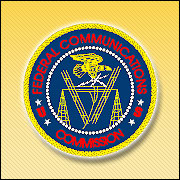
The U.S. Federal Communications Commission reportedly plans to reevaluate its current standards on cellphone radiation.
The FCC’s current guidelines set maximum levels; however, they were last updated in 1996. Considering the advancement and growth of cellphone technology over the last 16 years, FCC Chairman Julius Genachowski has reportedly circulated a proposal calling for a review on the regulations. Research on the topic of cellphone radiation remains controversial.
Research on the topic of cellphone radiation remains controversial. Some scientific studies have shown that the radiation from cellphones can cause brain tumors, different types of cancer and other health risks, especially for children; other studies have suggested the radiation produced by phones is essentially harmless.
The FCC didn’t respond to our request for comment.
Ongoing Debate
Although debate on the issue rages on in the United States, many other countries as well as several worldwide health groups have warned citizens about the possible harm of cellphone radiation. About a year ago, the World Health Organization added cellphone radiation to a list of possible carcinogens, a list that also includes chloroform and lead, and advised further study about potential dangers.
“The U.S. is the only place where the tug of war is as extreme as it is,” Devra Davis, epidemiologist and researcher on cellphone radiation, told TechNewsWorld. “In countries like France, Israel, Finland, Turkey and Russia, they are warning people about the dangers.”
However, some studies have concluded that cellphones pose no serious risk to consumers, or at least not any more than the dangers associated with other common devices such as microwaves and radios. In San Francisco, activists urged City Hall to require warnings on cellphones, but the International Association for the Wireless Telecommunications Industry (CTIA) fought the movement in court and won.
The FCC’s upcoming investigation will come to a similar conclusion, John Wall, vice president of public affairs at CTIA, told TechNewsWorld, citing a recent comprehensive study from the United Kingdom’s Health Protection Agency.
“We fully expect that the FCC’s review will confirm, as it has in the past, that the scientific evidence establishes no reason for concern about the safety of cellphones,” Wall said. “Expert agencies and scientific advisory groups around the world have concluded that cellphones operating within government standards pose no known health effects and are safe for normal use.”
Possible Outcomes
Whether or not the FCC is able to find conclusive evidence one way or the other on the matter, cellphone manufacturers and providers could be affected by the investigation. New findings could lead to greater regulations on the radiation a cellphone is allowed to emit, Lloyd Morgan, director of the Central Brain Tumor Registry of the United States, told TechNewsWorld.
Since the current standards were agreed upon in 1996, when cellphones weren’t used by a majority of the population, and especially not by children, it’s likely that a new set of guidelines will be imposed, he said.
“There are a host of actions that the cellphone industry could take to greatly reduce the risk of using cellphones,” he said. “As is, it is up to cellphone users to take action which, while inconvenient, could reduce the amount of MW radiation to the brain by 10,000 percent or more.”
Those hoping to expose the dangers of cellphone radiation to the world aren’t trying to place an outright ban on the devices, said Davis.
“The real challenge is recognizing that cellphones are so valuable and useful, so how can we make them as safe as possible?” she asked. “Right now, the situation with cellphones is a little like it was with cars and seat belts. We’ve got to recognize the dangers and figure out how to make them safe.”





















































